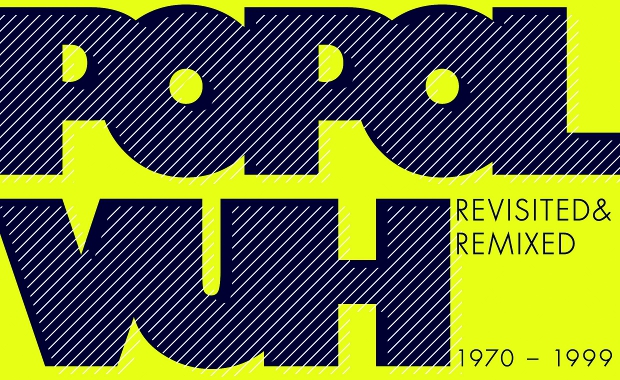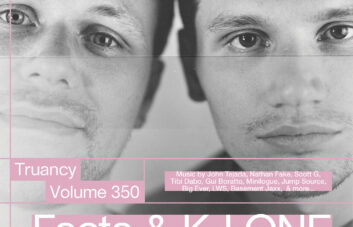Popol Vuh is the “Book of the People”, a series of texts detailing the creation myth of the Quiché Kingdom in Guatemala. Popol Vuh is also the name of a German Krautrock band founded Florian Fricke in 1970. It is fitting then, that Fricke should play a part in what one might term the creation myth of electronic music. One of only two German owners of a Moog synthesiser, Fricke and his band created the experimental ambient album Affenstunde, literally Monkey Hour, in 1970. It is generally regarded as one of the first albums containing original Moog-recorded music. Having met Werner Herzog in 1967, he went on to act in several of his films, while his band provided scores for some his most well regarded films. It is through these films that I myself first discovered the band. The haunting, swirling sounds of a nightmarish choir that accompany the sight of thousands of soldiers and natives as they journey through the Andes at the opening of Aguirre, der Zorn Gottes are both chilling and awe-inspiring. But I don’t mean to confine their work to the cinematic medium. The work transcends the screen, standing alone as both a precursor to and starting point for the world of ambient, not to mention the broader spectrum of electronica and IDM.
Popol Vuh – Aguirre I Lacrima di Rei
So it was with no small delight that I noticed the release of Popol Vuh: Revisited & Remixed (1970-1999). Featuring a handful of their most memorable tracks from both the aforementioned soundtracks and their own albums, the album also hosts a vivid and exciting selection of remixes from some of the most respected artists in the world of ambient, electronica and techno.
Disc One acts as a perfect introduction to the band’s sound, kicking off, unsurprisingly, with that haunting introduction to Aguirre. It might be easy to get bogged down in the connection between sound and image, but the evocative chords and voices of this piece are just as effective and emotive when isolated from their source. The album is programmed in relatively chronological sequence, moving on swiftly to “Affenstunde”, and a segment of “Ich Mache Einen Spiegel” from the same album. The former is a paralysingly interesting track, a 17-minute grand opus that combines relenteless drums and dizzying synths with moments of piercing stillness, while the latter sounds like a phone call to another dimension. “Nascita”, which breaks the sequence, comes from the group’s final album, Messa di Orfeo, a fitting title as it buzzes with the hum of the natural world, evoking the effect Orpheus had on the world around him.
“Brüder Des Schattens”, from Nosferatu: Phantom der Nacht, showcases an excursion into more organic territory, using woodwind, piano and the sound of monks chanting, while the previously unreleased “Kailash: Last Village”, which sounds like a gentler, more redemptive take on the Aguirre theme, closes the disc, setting up with no small promise the gifts in store on the second disc. It would be easy to go through this track by track, but there are a few standout pieces. Thomas Fehlmann takes Cobra Verde’s “Schnee” and crafts it into a slow-mo house track, redolent with guitar twangs and shuffling percussion. Mika Vainio takes the same piece and takes it in a different direction, building a lengthy, gated take on the group’s signature Moog sound.
Popol Vuh – Nachts Schnee (Ambient edit) (Mika Vainio Remix)
Moritz van Oswald, who has form with tackling older music and reinventing it with subtlety and imagination, builds a deep and focused techno track, gently teasing out aspects of “Gärten Pharaos” in a manner that bears repeated listens to reach its heart. Mouse on Mars, meanwhile, create the disc’s most out-and-out departure, creating a funk jam from Nosferatu’s “Through Pain To Heaven”. Indeed, they say themselves in the album’s liner notes that it’s a song “which we’d have liked to hear on our new album”.
“Train Through Time”, originally a bonus track from Affenstunde, is certainly the most aptly named track, covering a range of sounds and styles, as tablas and bongos rattle against what could be the sound of a train shuffling along, all accompanied by the wandering synths that made the band’s name. It’s fitting then, after 10 tracks that have been stripped apart and dragged into this century, that it should appear again in extended form.
Even lately their influence refuses to wane – CFCF put out The River last year, ostensibly inspired by Herzog’s Fitzcarraldo (its artwork is a direct copy of a map that features in the film), itstitle track comes across like a fuzzier, guitar-led version of Aguirre. On top of this, there’s the recent release of Floating World by Zodiac Free Arts Club, which features “Ein Lied Für Popol Vuh” (recently remixed by Bostro Pesopeo) – there’s no ambiguity there.
CFCF – The River by theylivewesleep
I’m jealous of anyone who has the chance to get to hear the opening fade-in of Aguirre for the first time, and so I can’t recommend this package highly enough. On the 10th anniversary of Fricke’s death, this compilation is the perfect introduction to Popol Vuh, both in terms of the music itself and the esteem in which they are justifiably held. No myth about it.





Just to echo everything said here, I bloody love Popol Vuh and their soundtracks with Herzog are amongst the best in the short history of cinema.
Such a great post. Most likely will end up watching Nosferatu tonight!
Must admit I haven’t watch Aguirre yet, will have to do it soon